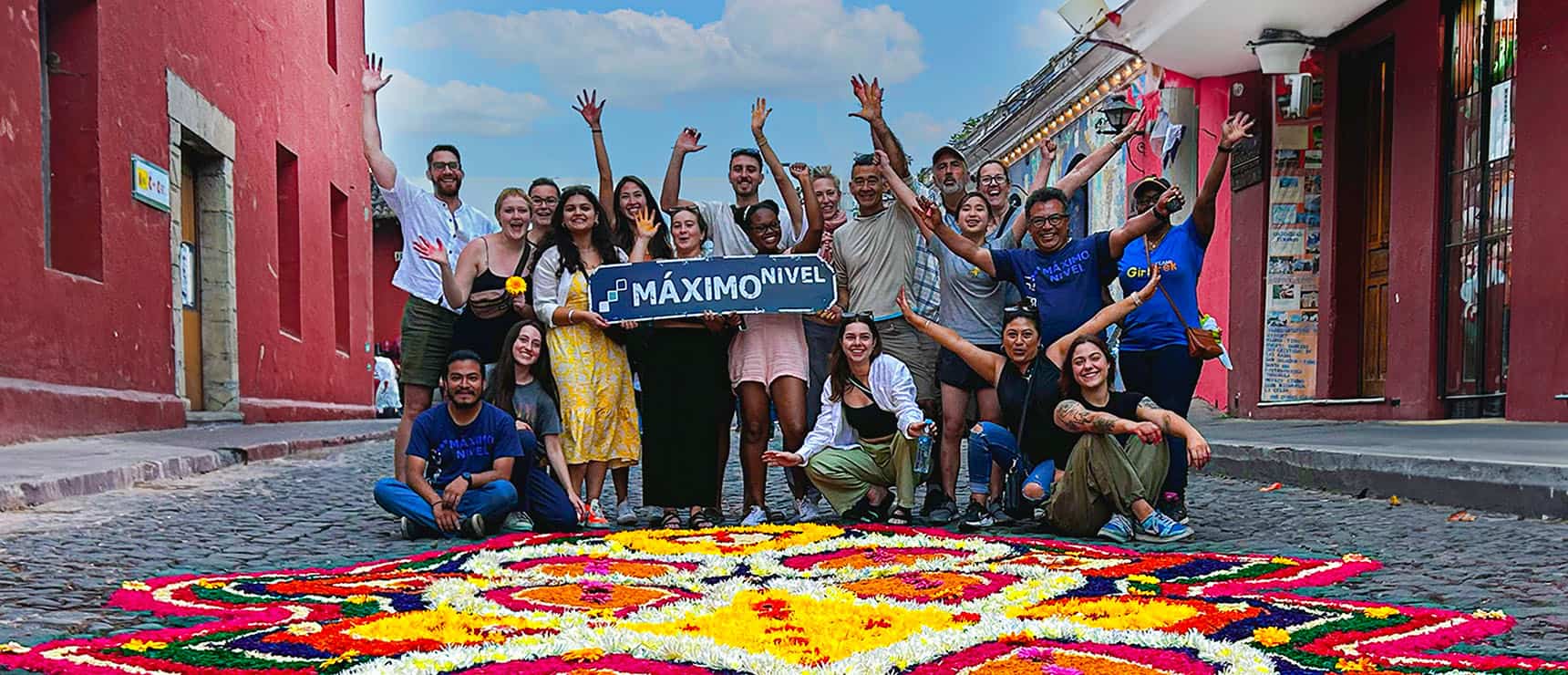There’s a growing movement toward non-traditional study abroad locations, which often offer students a more cost-effective immersive experience. One region increasingly attracting attention is Latin America, with Guatemala’s historic city of Antigua standing out as a beacon for students seeking something new.
At the centre of this shift is , an organisation committed to creating meaningful international experiences in the heart of Latin America.
Why Latin America? A world of opportunity awaits
Latin America has long been seen as a dynamic region for cultural and linguistic learning. Now, recent global trends are positioning it as a strategic choice for students looking to enhance their academic and professional profiles.
With US-Latin American economic integration deepening and the demand for bilingual professionals surging – especially in industries like healthcare, education, and business – students who have studied Spanish and understand Latin American culture will have a marked advantage in their careers.
The US itself is home to over 60 million Spanish speakers, making it the second-largest Spanish-speaking country in the world, just behind Mexico. This demographic reality, coupled with the anticipated growth of Latin America’s middle class by 50 million people forecasted for 2030, means that gaining regional expertise is not just a cultural endeavour, but a career-defining opportunity!
Latin America is also young – more than 25% of its population is under the age of 15 – making it a vibrant hub for future innovation and economic development.
For students eyeing a future in fields like international business or public health, Latin America is more than an adventure – it’s a window into the future of global economies and social trends.
Antigua, Guatemala: more than a classroom
In the search for nontraditional study destinations, Antigua, Guatemala, emerges as a hidden gem. This UNESCO World Heritage site, known for its colonial architecture and cobblestone streets, combines a rich historical backdrop with a lively, modern atmosphere.
For students, it offers an opportunity to engage deeply with local communities while also exploring one of Latin America’s safest and most picturesque cities.
The draw of Antigua isn’t just its beauty and history – it’s also the affordability. For students seeking high-quality programs at a fraction of the cost of more common study abroad destinations, Antigua offers a compelling option. With programs like those offered by Maximo Nivel, students can spend weeks, a semester, or even a full year studying in a setting where Spanish immersion is paired with cultural and course-specific learning experiences, all within a .
Whether studying the Spanish language, or participating in a full university-level program, such as service-learning, internships, and university courses, or participating in local festivals like Semana Santa and the Sumpango Giant Kite Festival, the immersive experience in Antigua is authentic and very unique.
Learning beyond the classroom: Maximo Nivel’s unique programs
, Maximo Nivel has been crafting study abroad experiences at their campuses in , , and . For students looking to move beyond the typical classroom setting, programs in Latin America offer a range of opportunities.
One highlight is Maximo Nivel’s service-learning programs in Guatemala, where students can work alongside indigenous communities on education and development projects.
Whether it’s engaging with local coffee farmers in sustainable agriculture or assisting healthcare campaigns in rural villages, these programs provide students with tangible, real-world skills and a deeper understanding of Guatemala’s rich cultural landscape.
Maximo Nivel also offers international internships across fields such as business, education, healthcare, social work, and environmental conservation, among others. These opportunities allow students to develop professional skills while contributing to impactful local projects and communities.
For example, pre-med students might find themselves working in local clinics and hospitals, gaining invaluable experience in primary care and public health, while business students can assist small enterprises with strategic planning in micro-business internships.
Voices from the field: student perspectives
The true measure of any educational program comes from those who have lived it. Yanil Ramirez from Wright State University participated in a medical volunteer program with Maximo Nivel in Antigua, and her experience underscores the program’s transformative potential.
“It has been a life changing experience…The program is very organized and takes participants through every step to be successful and have a great time,” she shared, reflecting on the chance to apply her medical knowledge in a hands-on setting while immersing herself in the local culture.
Similarly, Seth Burack, a medical student from Eastern Virginia Medical School, spoke about the value of studying Medical Spanish during his two-week stint in Antigua.
“The classes helped me build confidence for treating Spanish-speaking patients in the future,” he said. “The experience here was so supportive, from the staff to my host family—it made a world of difference.”
A broader narrative: why non-traditional matters
At its core, the shift toward nontraditional study destinations like Guatemala, and other parts of Latin America, is about more than just geography – it’s about shifting perspectives. By stepping outside the familiar routes of study abroad, students and faculty are not only expanding their academic knowledge, but also their worldview.
Programs like those offered by Maximo Nivel create opportunities for students to engage with cultures and communities in ways that leave lasting impact on students’ personal and professional lives. And the lower cost makes studying abroad in Latin America more accessible to more students!
As the demand for global competence grows, destinations like Guatemala and the rest of Latin America offer more than just an education – they offer a new way to understand and navigate an increasingly interconnected world.



